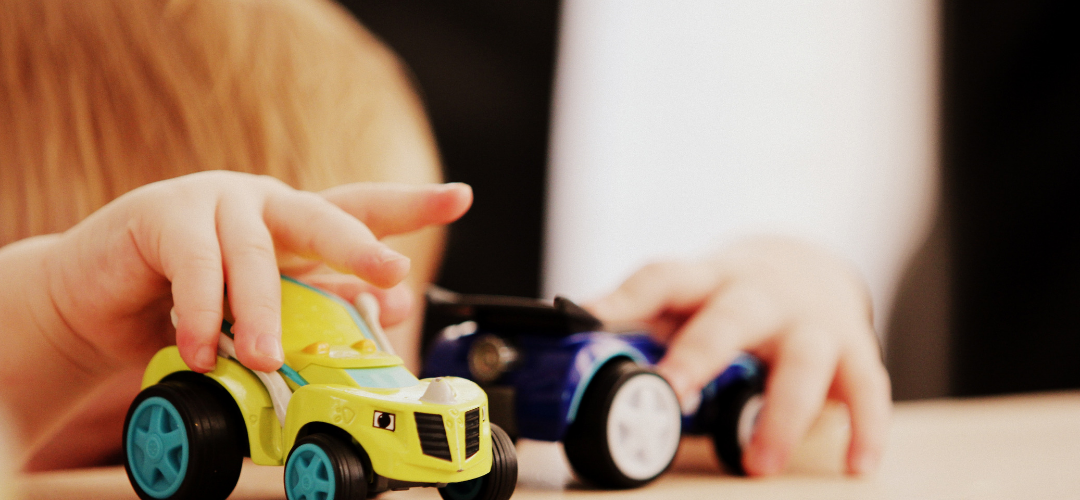“Enter into children’s play and you will find the place where their minds, hearts, and souls meet.” – Virginia Axline
Children are whole people. They remember, interpret and learn. They create their own inner world. Children communicate about this inner world through play and play therapy allows therapists to access their inner world.
Axline is one of the founders of Play Therapy, and she is so right! I am grateful to be able to practice this unique and effective treatment for children at Family Service of Roanoke Valley.
National Play Therapy Week is coming to an end, so I wanted
Play is a child’s language.
When children have a bad day, they do not come home and begin to tell you all about what happened. They come home and ask “will you play with me?”
Play therapy is based on the belief that play is a child’s language and toys are their words (Landreth, 2012). Play is a fun, enjoyable activity that elevates our spirits and brightens our outlook on life.
However, it also expands self-expression, self-knowledge, self-actualization and self-efficacy. As the wonderful Mister Rogers once said “play is really the work of childhood.”
Play therapists are specially trained to understand, interpret, and respond to children’s play communications and to increase parents’ abilities to “talk” to their children through play.
Children process their feelings and experiences through play.
Children best express themselves through play. They need hands-on, verbal and physical interaction to help them learn. When children are having difficulty, they may express their pain in ways that are undesirable such as tantrums, defiance, or clinginess.
Play therapy differs from regular play in that the therapist helps children to address and resolve their own problems through their play. By staying in the metaphor of play, children gain the emotional distance they need to tolerate difficult feelings and experiences.
Children often report having fun during play therapy, even though their brains are actually doing a lot of work.
Children feel understood and accepted.
You may be thinking this is something all children have with their parents, but children who have experienced trauma and attachment disruption are often left feeling unworthy of love and care.
In the presence of a trained play therapist, who is fluent in this language of play, children receive the acceptance and understanding needed to feel safe enough to process those more traumatic and challenging experiences. The positive relationship that develops between therapist and child during play therapy sessions can provide a corrective emotional experience necessary for healing.
I am reminded daily how amazing this is for kids. From my experience, I have seen kids struggle with all kinds of issues and when they are given the opportunity to be seen in a different light, they flourish.
I believe this is because when children feel understood and accepted, they can begin to understand and accept themselves.
Caregivers are an integral part of the play therapy process.
The relationship between the play therapist and child is important and key to progress. However, the relationship between the child and her caregiver is more important than the therapist will ever be.
One of the most important goals of play therapy is to make the caregiver-child relationship the best it can be. It can be very difficult and stressful to parent a child who is exhibiting distress. Play therapy will reduce this distress, providing caregivers with more opportunity to simply enjoy spending time with their child.
Although caregivers may not be in the room while therapy takes place, they will be an active participant in their child’s therapy by bringing them to sessions, meeting with the therapist as needed, and supporting their child in implementing the skills they learn in therapy at home.
Play therapy addresses a wide variety of concerns.
Play therapy is used in all types of settings because it addresses a variety of concerns. Play therapy is one of the most empirically validated forms of therapy for children and families.
Research supports the effectiveness of play therapy with children experiencing a wide variety of social, emotional, behavioral, and learning problems related to a variety of life stressors including: divorce, death, relocation, hospitalization, chronic illness, physical and sexual abuse, domestic violence, and natural disasters. During play therapy, children can be working on social skills, relationship building, handling emotions, understanding cause and effect, handling limits, and communicating and expressing their feelings, needs and wants.
Play therapy is an effective mental health approach, regardless of age, gender, or the nature of the problem, and works best when a parent, family member, or caretaker is actively involved in the treatment process.
Even better, some studies indicate that play therapy can have positive effects for several years after the end of treatment.
For Help:
Deciding whether or not to take your child to a therapist for child and/or family therapy is a personal choice. Children are seen in therapy for an array of reasons. However, if you are beginning to see your child struggle with behavioral or emotional concerns that are affecting his or her ability, or your family’s ability to function, it may be time to contact a mental health professional. For more information on play therapy with Family Service of Roanoke Valley, please contact our intake specialist at 540-795-4653.
You can learn more about play therapy from the Association for Play Therapy’s website, www.a4pt.org or the Virginia Association for Play Therapy’s website, www.vaptplay.org.


